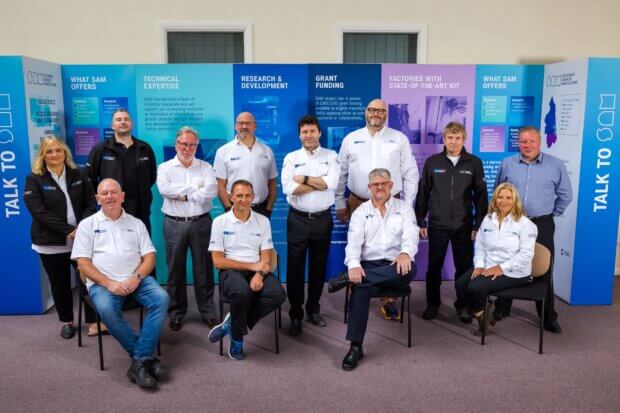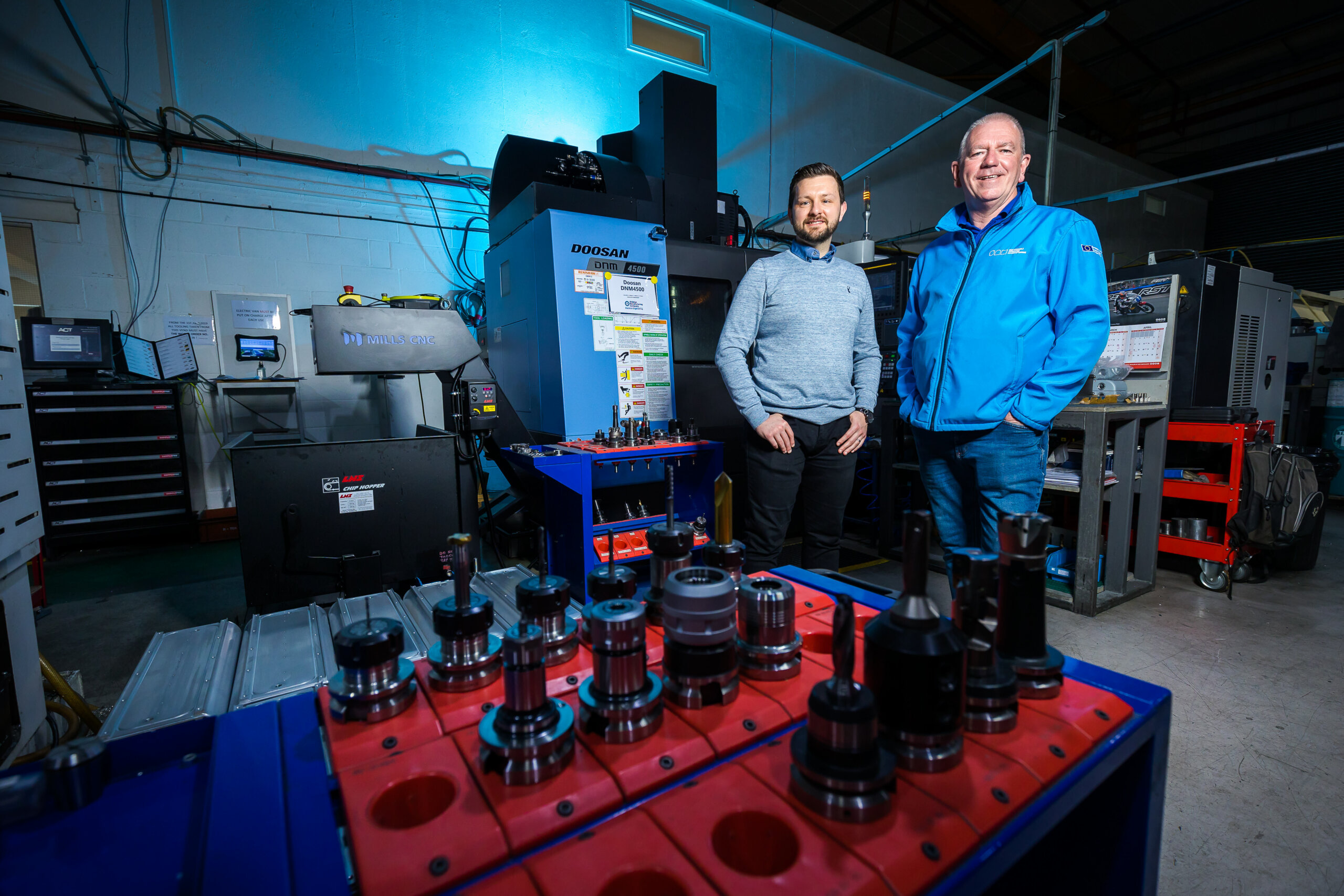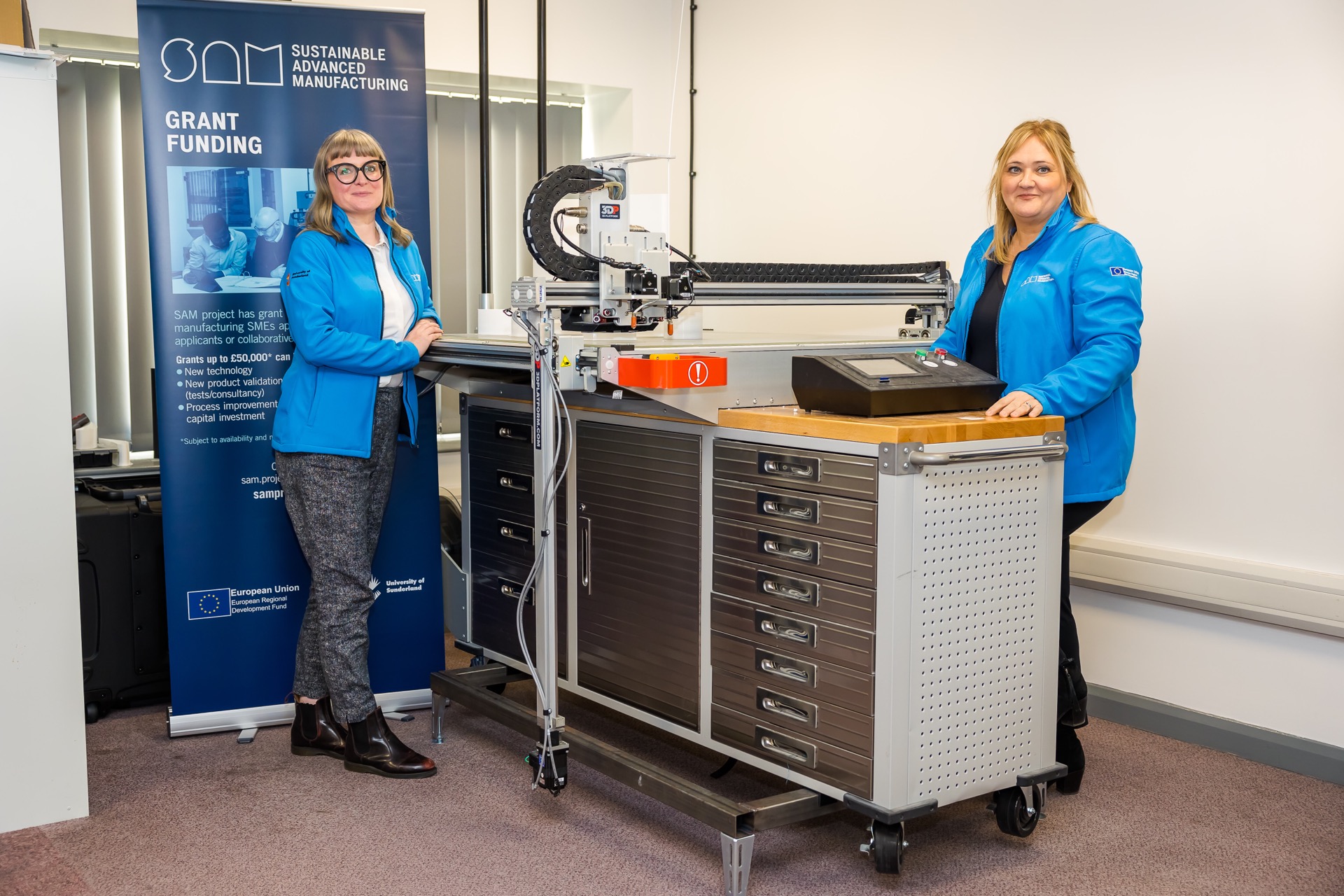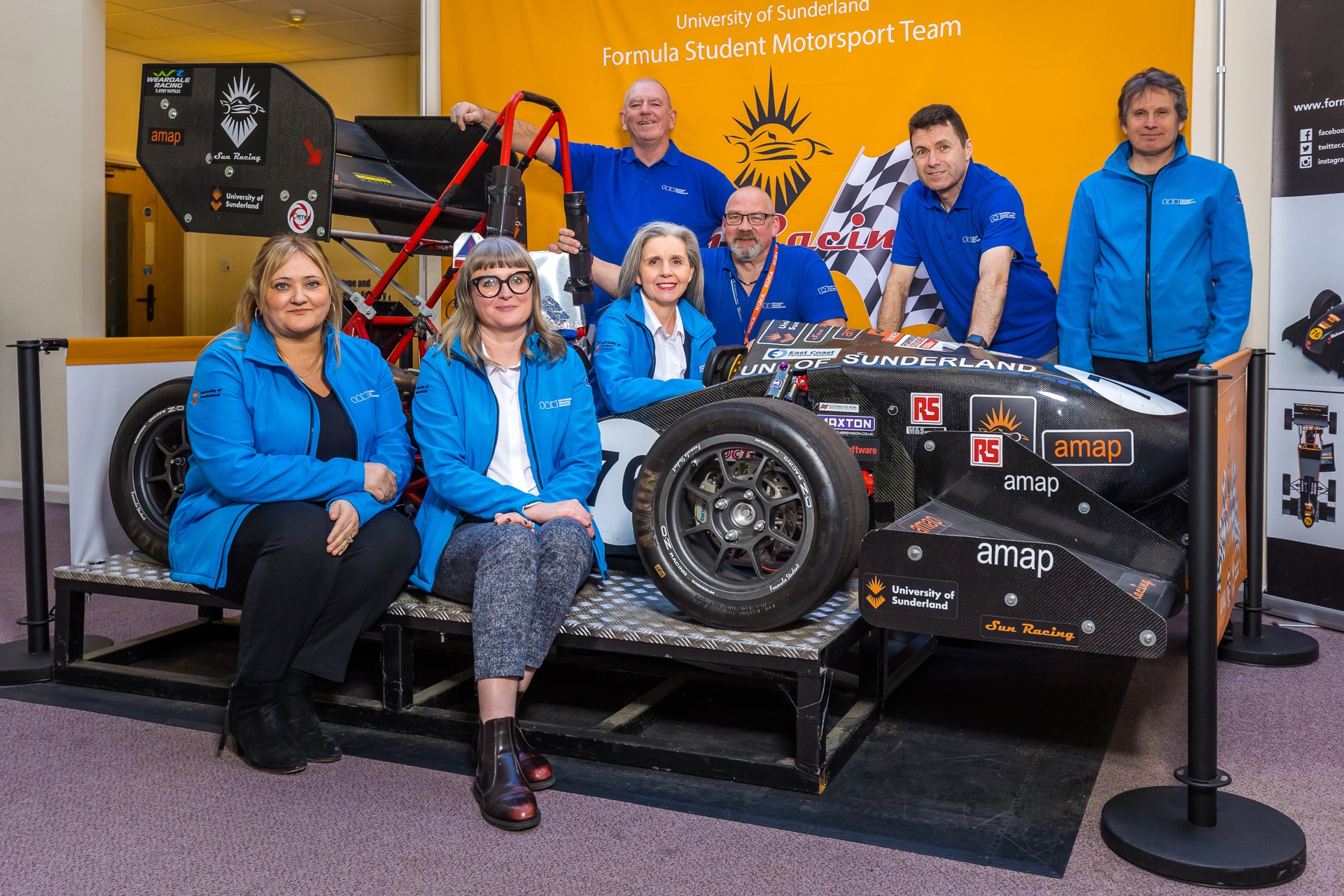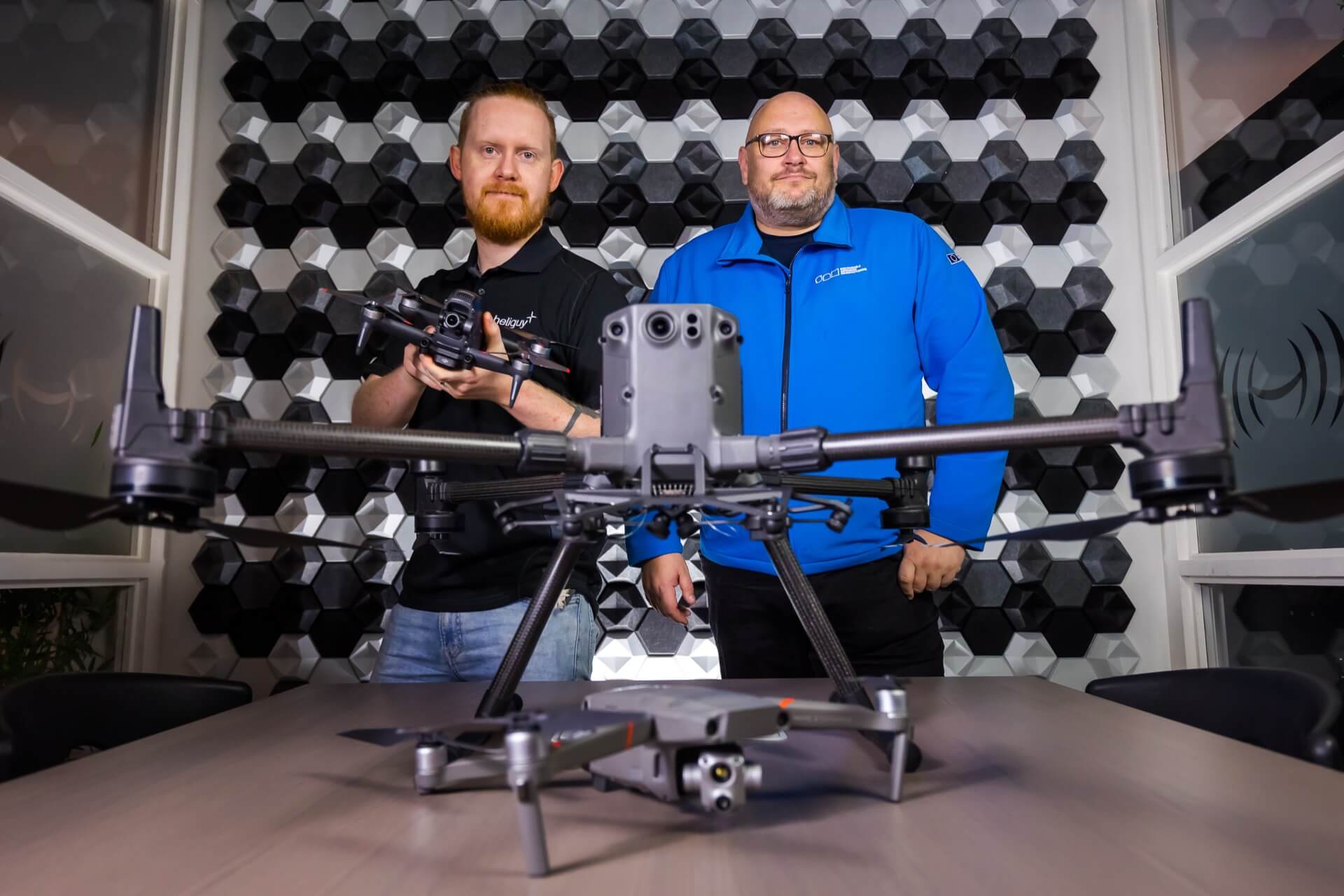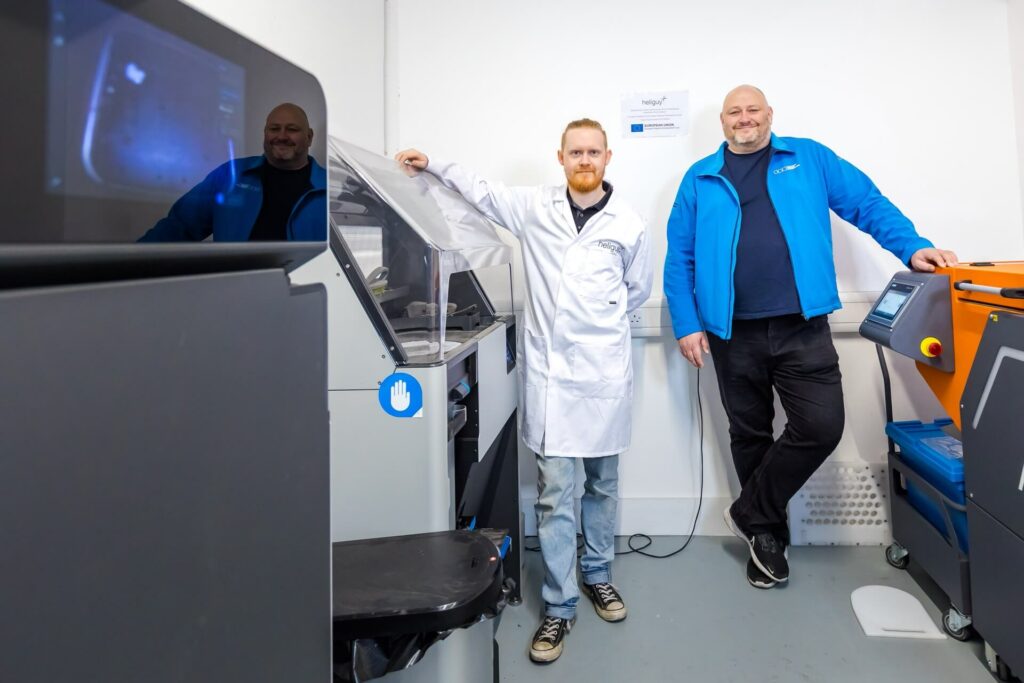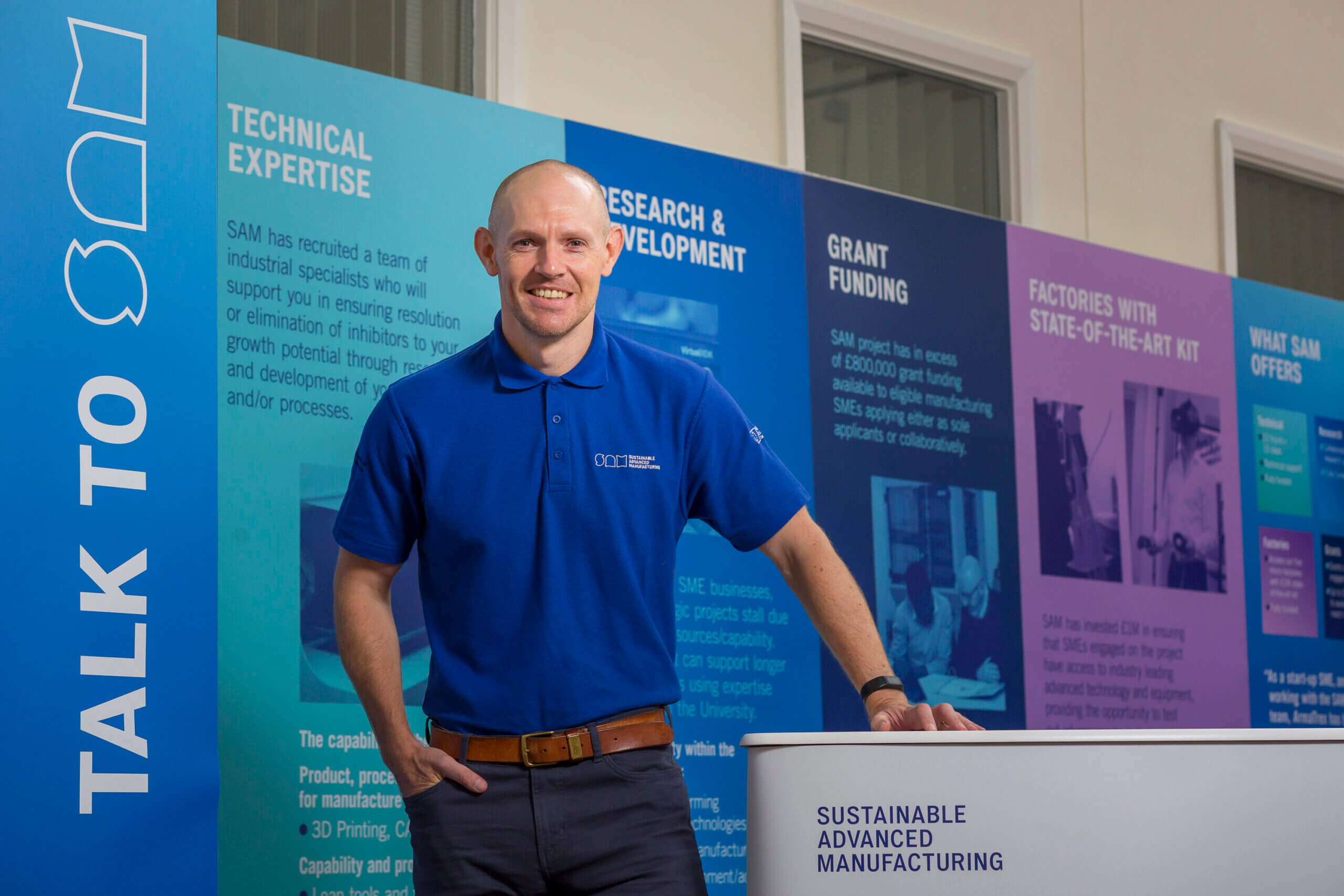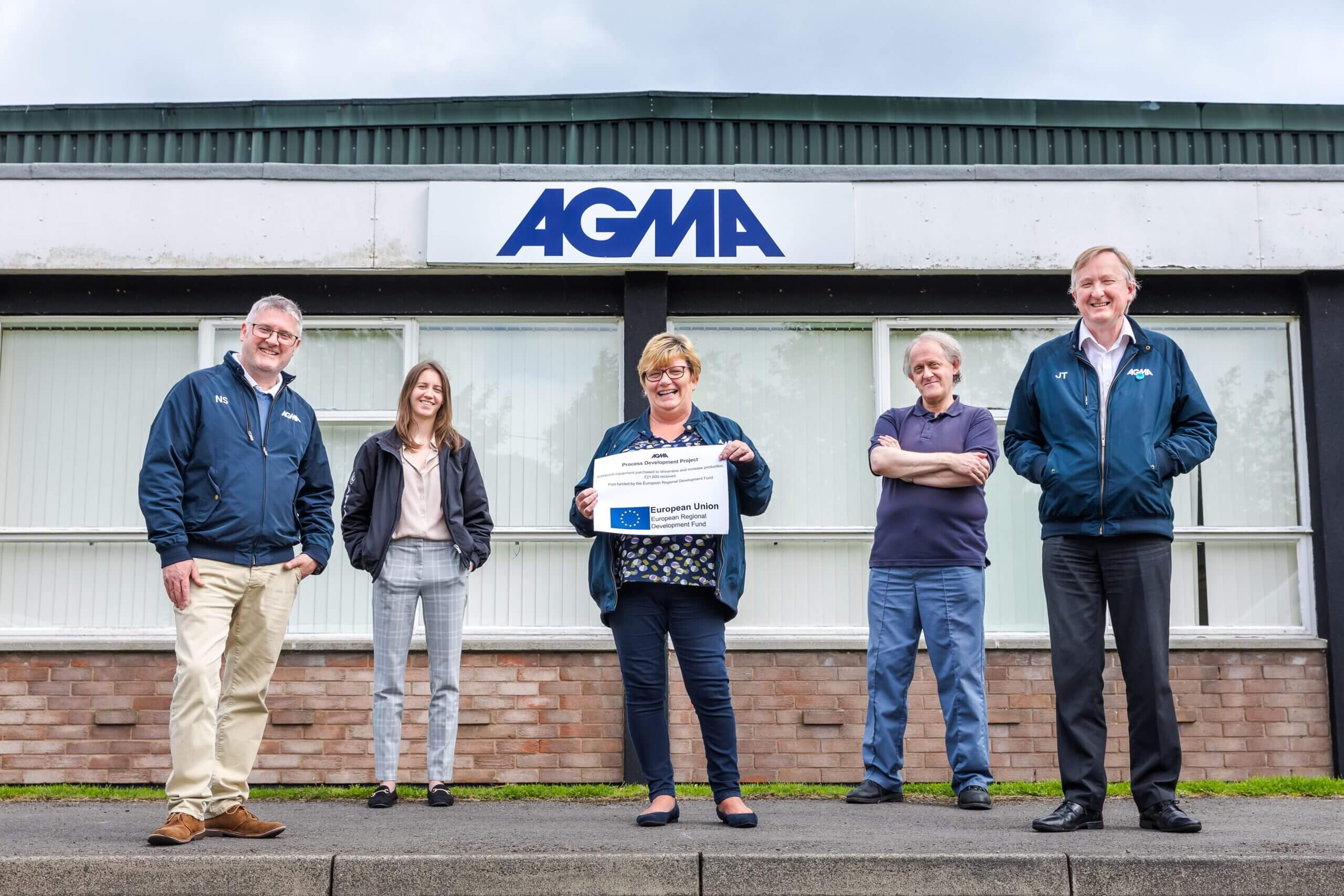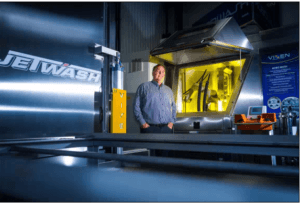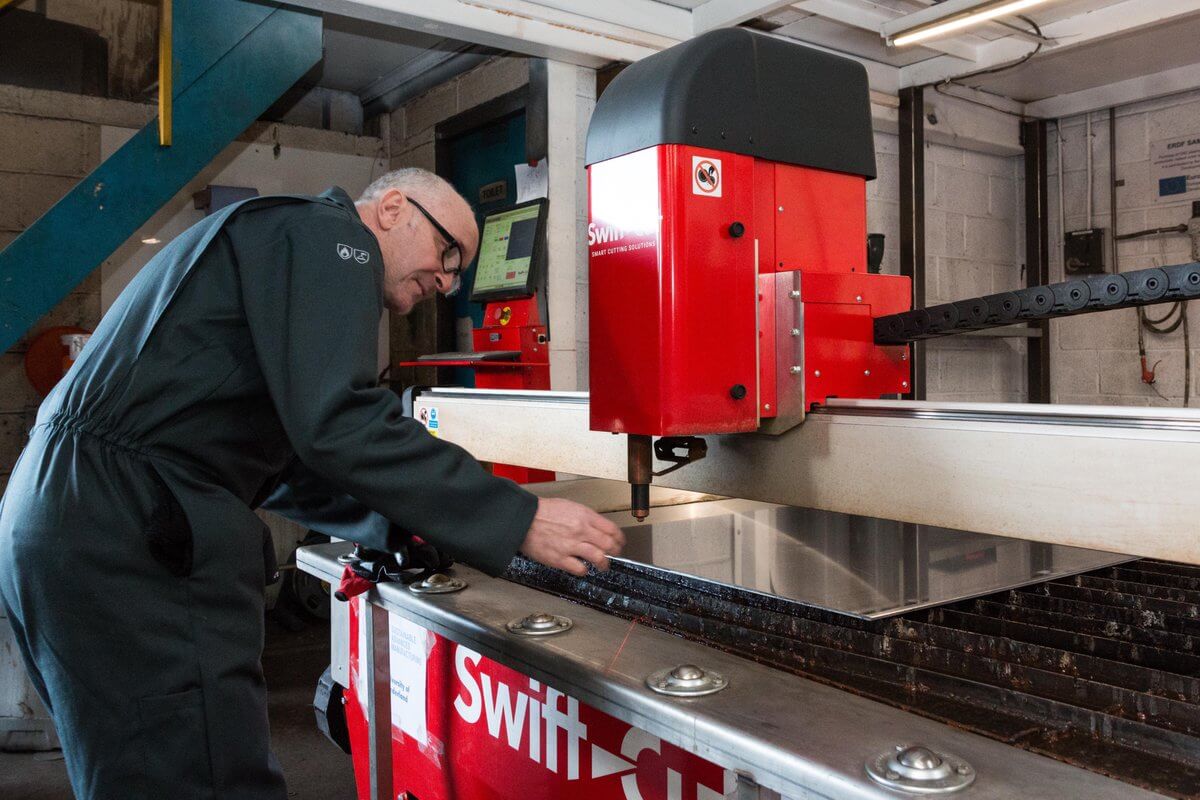The SAM Project is urging the region’s manufacturers to apply for grant funding before it’s too late.
Hundreds of businesses have received grants of up to £50,000 from the Sustainable Advanced Manufacturing (SAM) Project at the University of Sunderland since its launch in 2018.
Totalling over £1million, the grants have helped businesses – ranging from sole traders to those with over 100 employees – embrace the latest technology and improve processes, leading to the creation of hundreds of jobs and boosting the regional economy by tens of millions of pounds.
And with the second round of the grant fund closing this month, the programme is urging businesses to apply for funding before the February 1 deadline.
Roger O’Brien, Project & Technical Lead at the SAM Project, said: “Over the past four years we’ve seen hundreds of manufacturers benefit from our grant funding and technical support, from companies investing in robotics to cutting-edge machinery and VR equipment.
“The embracing of such new technologies hasn’t just led to increased profits, either. An impact report following the first phase of the SAM Project revealed that it had helped create over 290 jobs and add in excess of £47.1million in gross value to the region’s economy, so it has had a profound impact.
“However, all good things must come to an end, which is why we are urging the region’s manufacturers who have not yet applied for funding from phase two of the project to apply before it’s too late.”
The matched grant funding can be used to support capital/ product validation, tooling and overcoming other financial inhibitors, unblocking strategic development of both product and processes within a manufacturing business.
One business that has benefited from funding from the SAM Project is soft drink manufacturer Clearly Drinks, based on Southwick Industrial Estate in Sunderland.
After receiving a grant from the SAM Project, the company was able to purchase a new pasteurisation unit and nitrogen dosing system which led to the creation of 10 new jobs and helped the company land its largest contract to date with a national wholesaler.
Chief executive Mick Howard, who joined the company in 2018, said: “The support from SAM was fantastic. The process was super-simple and allowed us to not only tap into funding to help de-risk our investment, but also receive the technical expertise required to ensure we maximise the potential of the new equipment and technology.
“For a business like us, in the current landscape, it can be quite hard tapping into funding and support when you’re looking to scale and the team at the SAM Project really went above and beyond to help us.”
As well as providing grant funding, the SAM Project has also brought together a team of manufacturing experts with over 250 years of industry experience to provide free, expert support to the region’s businesses.
It has also invested millions of pounds into establishing a series of state-of-the-art test factories at the University of Sunderland’s Industry Centre, boasting 3D printers, I4 rigs and VR/AR equipment and software to encourage SME engagement with advanced technology.
Roger added: “Whether you’re overcoming challenges or identifying new opportunities to grow, the likelihood is that our team have been there and done it, and if they haven’t, you can guarantee that they won’t stop until they’ve helped you engineer a solution to it, so I’d recommend any business wanting to tap into their knowledge to get in touch while they can.”
The Sustainable Advanced Manufacturing (SAM) Project is a £10.9m project to support the implementation of product and process development and the introduction of technology within the SME manufacturing base in the North East Local Enterprise Partnership (NE LEP) area.
The programme is a collaboration between ERDF, which provided £5.77m in funding (£2.6million from 2014-2020 and £3.1million from 2020-2023) and the University of Sunderland, which manages and, alongside industry, has invested £5.15m into the delivery of this project.
For more information on the SAM Project’s grant funding and technical support, contact Dionne Clark at Dionne.Clark@sunderland.ac.uk

